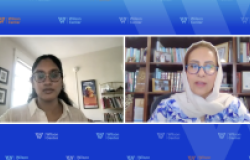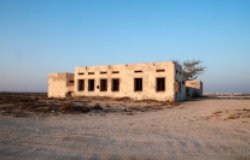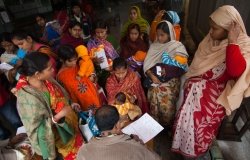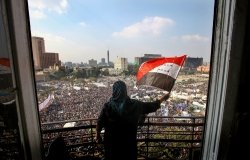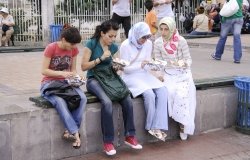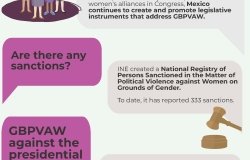#207 Political Economy and Gender in Latin America: The Emerging Dilemmas
By María Patricia Fernández Kelly
From the Preface
In the paper, "Political Economy and Gender in Latin America: The Emerging Dilemmas," Dr. Fernandez Kelly examines the intersection between development approaches and the study of women and gender. She begins by summarizing perspectives on development, outlining the evolution of the concept from a focus on economic growth and capitalist expansion in the 1940s to alternative approaches focusing on development and underdevelopment as products of unequal exchanges between industrial and developing nations.
The second part of the paper examines the concept of gender and its relationship to development and feminist currents of thought. Dr. Fernandez Kelly argues that gender is an analytical category affecting the allocation of political, social, and economic resources. Perceived sex differences help determine patterns of social, political, and economic organization. Dr. Fernandez Kelly asserts that the concept of gender is used to assign men and women to different areas of production and thus contributes to the distribution of power in both public and private spheres.
The paper's third section analyzes migration along the U.S.-Mexico border and the expansion of Mexico's maquiladora program as examples of how the increased internationalization of economies has challenged gender definitions. Trends in Latin America toward integration into the global economy through the liberalization of national economies and the expansion of export production has been accompanied by an unprecedented incorporation of women into the labor force. Women have become labor participants rather than simply domestic actors limited to the private spheres of family and unpaid work. While the labor force of the maquiladora program was once predominantly female, recent changes have resulted in the growth of male employment. Changes in production, investments in capital goods, and the integration of advanced technology have resulted in a recomposition of tasks and labor. These shifts, combined with the demands generated by increased poverty, have changed the kinds of work men and women do, exemplifying that gender as a category is a dynamic and continually evolving concept.
Related Program

Latin America Program
The Wilson Center’s prestigious Latin America Program provides non-partisan expertise to a broad community of decision makers in the United States and Latin America on critical policy issues facing the Hemisphere. The Program provides insightful and actionable research for policymakers, private sector leaders, journalists, and public intellectuals in the United States and Latin America. To bridge the gap between scholarship and policy action, it fosters new inquiry, sponsors high-level public and private meetings among multiple stakeholders, and explores policy options to improve outcomes for citizens throughout the Americas. Drawing on the Wilson Center’s strength as the nation’s key non-partisan policy forum, the Program serves as a trusted source of analysis and a vital point of contact between the worlds of scholarship and action. Read more


